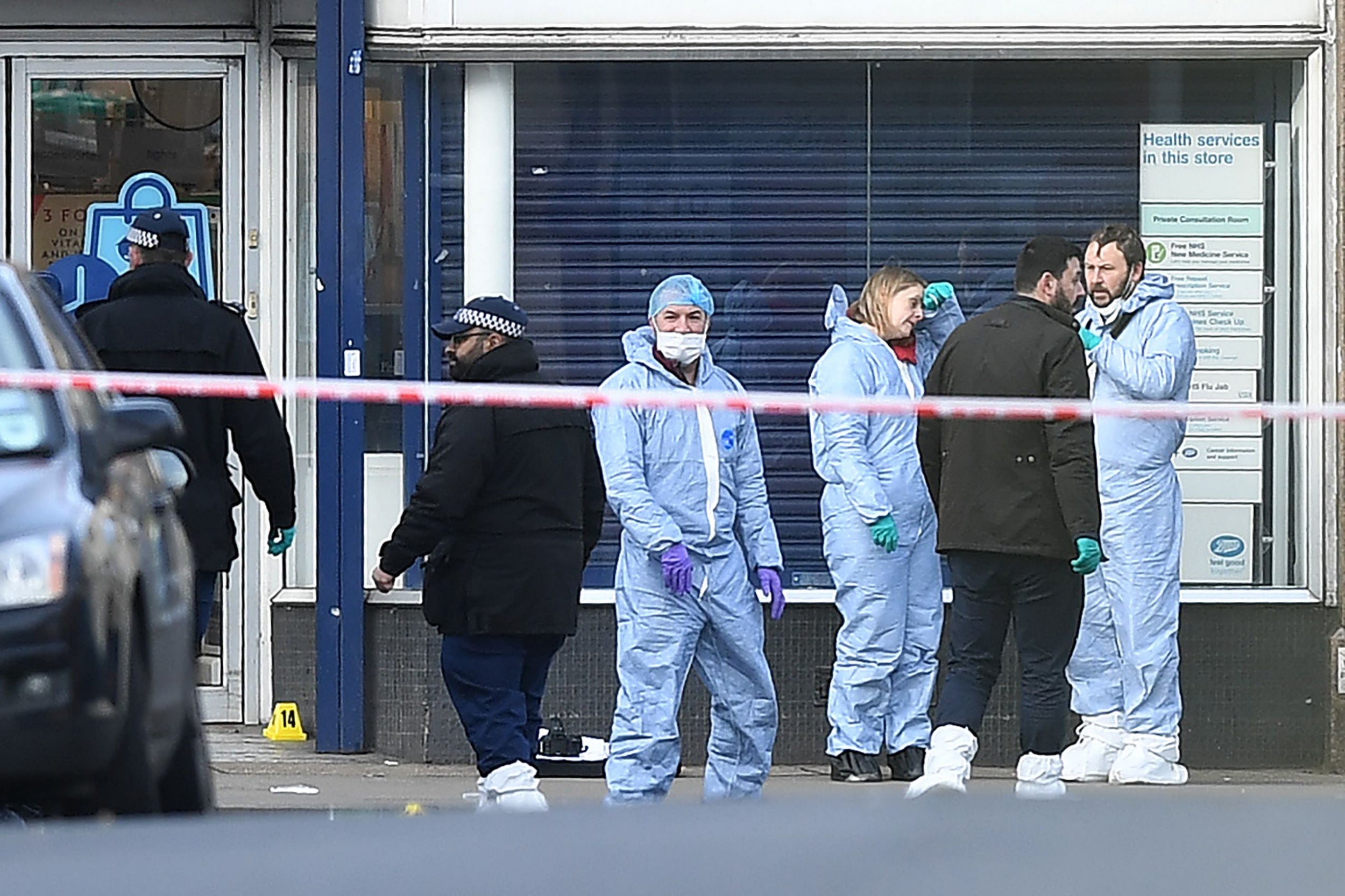Longer sentences for terror offences would not have stopped Streatham attacker Sudesh Amman
Analysis: Prisons have become a recruiting ground for Islamist extremists. There is no reason to think Amman would not have carried out the stabbings after another 18 months in Belmarsh, writes Kim Sengupta


The attack carried out by Sudesh Amman has been followed by Boris Johnson declaring the system of early releases for terrorist offences needs to end and further calls for a minimum term of 14 years for some acts of terror.
It is unlikely, however, that either of these measures would have prevented the stabbings in south London. The projected tariff of 14 years is only meant for the most serious offences and thus would not have applied to Amman.
There is also no reason to believe that Amman would not have carried out the stabbing after another 18 months in jail: especially as there is evidence that he wanted to die as a “shuhada”, martyr, and go to “Jannah”, paradise. He achieved that aim, as had a number of other jihadis recently, by wearing a fake suicide vest.
Amman’s mother, Haleema Faraz Khan, has said he had become more radicalised after being sent to Belmarsh prison following his conviction for possession of extremist material.
While the narrative of a relatively harmless individual being turned towards violence has been a common theme among many of the families of those who carried out terrorist acts, it remains a fact that prisons have become a recruiting ground for Islamist extremists. There has even been a terrorist murder attempt on staff at HMP Whitemoor in Cambridgeshire.
Not only has extremist indoctrination continued in the prison system, say security sources, there is little effective assessment of the risks posed by those who are freed early under current rules. It is believed there were no indications from the prison authorities in Belmarsh, which houses some of the country’s most dangerous prisoners, that there would be a significant risk in him being out on the streets.
Mr Johnson has declared that rehabilitation of convicted terrorists has not worked: “The instances of success are really very few and we need to be frank about that.” What he did not go on to say, critics point out, is that this follows continuous funding cuts under a decade of Conservative governments in power.
Some steps have been been taken after the murders committed by Usman Khan, another released prisoner, in London Bridge. At present the licence rules for 74 people convicted of terrorist offences who have been released from jail are being reviewed with the option of sending them back to complete their sentences if they are deemed to be a threat to the public.
Khan, who was freed under licence in December 2018 from a sentence which had been reduced on appeal, was being monitored by MI5, but not kept under constant surveillance – meaning he was subjected to a number of security measures rather than being tracked at all times.
Khan and eight other aspiring jihadis, inspired by al-Qaeda, plotted to get combat training in Pakistan and gain experience carrying out attacks in Kashmir in rehearsal for launching Mumbai-style atrocities in Britain.
The wish list of targets, their 2012 trial heard, included the US embassy, the Stock Exchange, the Palace of Westminster, Westminster Abbey, Big Ben, the London Eye, synagogues, and the headquarters of the Church of Scientology in London, as well as pubs and public toilets in the Stoke-on-Trent area.
Amman, convicted of much lesser offences, was under surveillance, again as a result of examining policies following the London Bridge attacks. The level of the watch on him was increased, with the inclusion of armed police officers, after the security agencies received information that he was making threatening comments about carrying out an attack.
This did not stop Amman from rushing into a shop, grabbing a knife and stabbing two people. This could have been because he had realised that he was being followed, a possibility the investigation is considering. But the presence of mobile surveillance teams probably prevented further attacks and fatalities.
These, however, are resource-heavy operations, which are supposed to take place at a time when the Johnson government has also pledged to wage a campaign against the rise in knife crimes, and the demand for them will continue.
There are, currently, 224 prisoners convicted of terrorist crimes, not serving life sentences, who are eligible for early release. It would be illegal for the government to try to block them from being freed – and an attempt to do so through the introduction of retrospective legislation would be open to legal challenge.

Jonathan Hall QC, the Independent Review of Terrorism Legislation, indicated the government could prepare emergency legislation for detaining people without a trial.
One of his predecessors, Lord Carlile, held that control orders would be the answer. “To deal with the immediate problem the government can reintroduce control orders as we had pre-2011. They worked well and withstood legal challenges and would be an effective and proportionate response.”
Control orders, introduced under 2005 legislation allowed a terrorist suspect to be placed under effective house arrest with restrictions on meetings and movements. They were replace by TPIMS (Terrorism Prevention and Investigation Measures) in 2011 with a higher threshold for punitive measures following complaints about civil liberties.
But it is unlikely that the threat posed by Amman would have been high enough for him to be placed under a control order.
“How far do you stretch it ? How sweeping would it be? Would the possession of extremist material be enough to qualify?” asked Robert Emerson, a security analyst. “Whatever measure is taken has to be balanced against human rights concerns and alienation of sections of a community.
“At the same time we have to consider just how long one can continue with the demands of intense surveillance operations alongside other policing commitments.”
Join our commenting forum
Join thought-provoking conversations, follow other Independent readers and see their replies
Comments